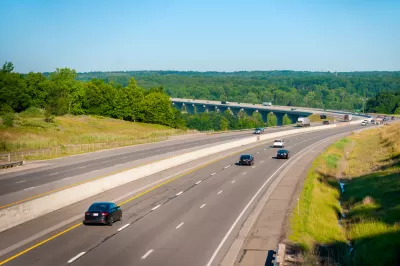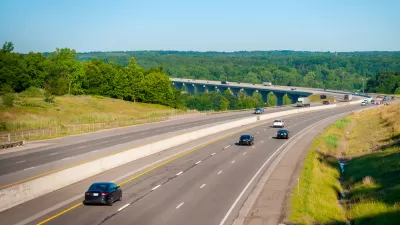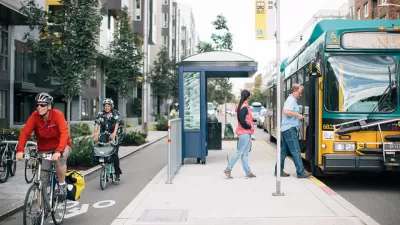The Northeast Ohio Areawide Coordinating Agency (NOACA) is moving forward with a groundbreaking policy to consider regional economic inequities when evaluating potential highway projects.

"A committee of the Northeast Ohio Areawide Coordinating Agency on Friday approved a new draft policy that would for the first time make racial and economic equity part of how it determines whether to approve new highway interchanges," reports Steven Litt.
The committee's decision to advance the new draft policy updates a story first shared by Planetizen in July.
Litt says that Northeast Ohio Areawide Coordinating Agency's (NOACA) full, 46-member board of directors "should approve the policy at its next meeting in December."
Grace Gallucci, executive director of NOACA is quoted in the article touting the policy's new approach to regional planning in Northeast Ohio. The goal of the policy is to "assess as much as we can the localized impact and the regional impact [of proposed interchanges], and to bring the board of NOACA the information so they can make a more informed decision," says Gallucci.
Litt's coverage also includes a list of the projects that would be subject to the new policy. NOACA's ability to veto projects would now be informed by newly detailed quantitative criteria for evaluating interchange projects like those listed in the article.
"New criteria would include detailed cost-benefit analysis of regional impacts on municipal budgets, economic development, environmental protection, quality of life, transit and bike use, and racial equity — both in communities receiving a new interchange and in adjacent and more distant communities," according to Litt.
FULL STORY: NOACA committee recommends policy to evaluate highway interchange proposals on racial, economic equity

Alabama: Trump Terminates Settlements for Black Communities Harmed By Raw Sewage
Trump deemed the landmark civil rights agreement “illegal DEI and environmental justice policy.”

Planetizen Federal Action Tracker
A weekly monitor of how Trump’s orders and actions are impacting planners and planning in America.

The 120 Year Old Tiny Home Villages That Sheltered San Francisco’s Earthquake Refugees
More than a century ago, San Francisco mobilized to house thousands of residents displaced by the 1906 earthquake. Could their strategy offer a model for the present?

Ken Jennings Launches Transit Web Series
The Jeopardy champ wants you to ride public transit.

BLM To Rescind Public Lands Rule
The change will downgrade conservation, once again putting federal land at risk for mining and other extractive uses.

Indy Neighborhood Group Builds Temporary Multi-Use Path
Community members, aided in part by funding from the city, repurposed a vehicle lane to create a protected bike and pedestrian path for the summer season.
Urban Design for Planners 1: Software Tools
This six-course series explores essential urban design concepts using open source software and equips planners with the tools they need to participate fully in the urban design process.
Planning for Universal Design
Learn the tools for implementing Universal Design in planning regulations.
Clanton & Associates, Inc.
Jessamine County Fiscal Court
Institute for Housing and Urban Development Studies (IHS)
City of Grandview
Harvard GSD Executive Education
Toledo-Lucas County Plan Commissions
Salt Lake City
NYU Wagner Graduate School of Public Service





























